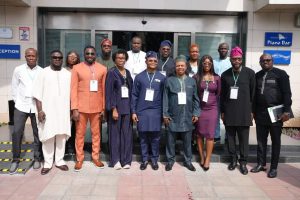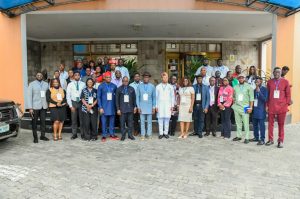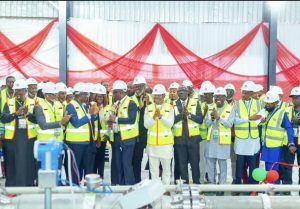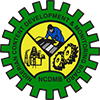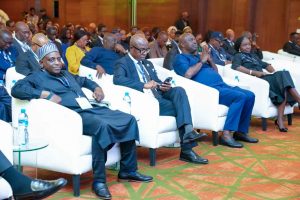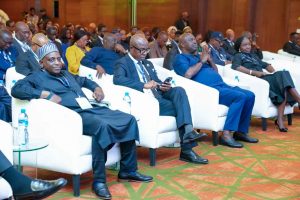The golden era of easy oil is over…Today the rules of the game have changed: Developing local economies, stimulating industrial development, increasing local capability, building a skilled workforce and creating a competitive supplier base – also referred to as local content – are minimum requirements for doing business with host countries and national oil companies,” a recent Accenture report stated.
Accenture, a global management consulting, technology services and outsourcing company in its report also said that International Oil Companies (IOCs), now have to develop new models and redefine their business approaches with National Oil Companies (NOCs) to include equity-building programmes that provide an opportunity to improve the IOC’s “license to operate” in developing countries.
The report was based on the growing concern by NOCs and emerging oil producing countries to have bigger stake in the management of their natural resources, which have been in the hands of foreign multinationals over time.
According to the Accenture, developing countries and NOCs with maturing mineral sectors, particularly oil and gas, have placed a renewed emphasis on increased local content participation by IOCs in recent years.
The report also said that host nations and NOCs are emphasizing that the desire for an increased contribution to the local economy and society and a strategic intent to pursue local content go beyond philanthropy and are beginning to expand their perspectives and mind-sets regarding how local content should be implemented.
Economic drain
Their reason is quite understandable. In Nigeria, for example, the control of oil and gas resources by the IOCs has led to a lot of capital flight, resulting in a drain on the economy of the country.
According to Ernest Nwapa, Executive Secretary, Nigerian Content Development and Monitoring Board, NCDMB, Nigeria recorded an estimated capital flight of about $380 billion between 1956 when oil was discovered and 2006, when the Nigerian content policy was initiated.
He also said that the country’s oil and gas industry has exported approximately two million jobs to other countries outside Nigeria within the 50 year period of operations by various operators in the sector.
However, the situation has changed since the signing into law of the Nigerian Content Bill, in April 2010, by President Goodluck Jonathan. Nwapa told the inaugural members of the local content committee of the House of Representatives that before now, more than 95 percent of the jobs in the industry were done abroad.
Specifically, he stated that $214 billion worth of procurement and $9 billion worth of research and development were done in North America, while $78 billion worth of technical services and $39 billion worth of engineering work were done in Europe. Asia dominated the fabrication aspect to the tune of $39 billion.
The NCDMB boss also said that with the coming into place of the Act, $107 billion procurement, $20 billion fabrication, $14 billion technical services, $20 billion engineering and $7 billion research and development are domiciled in Nigeria.
Nwapa also explained that $191 billion could be retained, while 300,000 new direct job opportunities are expected in such areas as engineering, sciences, technical services and manufacturing. In a similar vein, Nwapa said that 90 percent local content has been achieved in engineering, while 50 percent has been achieved in fabrication.
On the one percent of the contract sum for any project, which must be deducted at source and paid into the NCD Fund, he said that $150 million has accrued as at January, 2013. He maintained that strong stakeholder collaboration and local value addition framework would be required to achieve real Nigerian content.
Allied sectors
Apart from the oil and gas sector, Nwapa identified maritime as one other area with high impact on employment, technology transfer and value added services where NCDMB’s implementation strategies have been visible.
He noted that the sector used to be dominated by foreign owned and crew vessels and rig operators, resulting in about three billion dollars capital flight, but with the Board’s marine vessel and rigs ownership strategy, the situation is changing with remarkable indigenous participation.
He said, “Indigenous players are currently participating fully in the smaller vessel category, thereby retaining about one billion dollars annual spend in Nigeria, while a structured intervention for more Nigerian ownership of the larger offshore vessels has been put in place with a potential for retaining a further $1.5 billion in the next two years.
“There is optimism, however, that the current drive by the Board will ensure that by 2020, the ownership profile in the marine sector would be more indigene driven with a retention in excess of $4 billion per annum, 250,000 employment and training opportunities.”
Three years of Content Act
On his assessment of the three years of Nigerian content, Nwapa resisted making a self assessment, saying that it is left for the public to judge him.
According to him, “I do not believe in talking about my own performance as a board, but the feedback we get …all the oil companies, the service companies advertised for the three-year anniversary. I said to myself, we should not over celebrate it this year. Let other people give their own testimonies. The testimonies are clear. If you look at expatriate utilization, we are controlling it.
“We are telling them to go and find Nigerians to partner with. That is very fundamental. The contracts that are being awarded, you will see that mostly all the contracts have Nigerian participation if not complete, but 80 to 90 percent Nigerian participation,” he said. Nwapa may have been self-effacing in assessing the performance of his Board in the three years of its existence.
Oil majors’ support
General Manager, Nigerian Content Development, Shell Petroleum Development Company Limited, Igo Weli, said the NCDMB has done well in the last three years. According to him, “The Nigerian Content Development Monitoring Board has done a great job in terms of leading this effort. They have set out clear framework for implementation… If I read that Act, I see a lot of opportunities to create values, to create jobs in this country and to use it as a lever to manage some of the issues we have as a nation.”
He however pointed out some challenges facing the content law such as dearth of research and development, fallen educational standards, capacity and capability gaps in key areas, Petroleum Industry Bill, PIB uncertainties, and the content act waiver and moratorium.
Acknowledgments and concerns
Dimeji Bassir, Vice President Operations, Ofserv, an integrated energy company, said the Local Content Act is work in progress which has so far, being able to elicit compliance from the international oil companies.
“The implementation of the Nigerian content act, in my opinion, is work in progress. It is a marathon and not a sprint…It is giving priorities at par with safety which is a very important element of upstream oil and gas development activities. Because of the mandate vested on the NCDMB, it has been able to drive some level of compliance within the IOCs and their numerous projects.
“The IOCs today know that if they are found wanting in any areas relating to their commitment to fostering Nigerian content development on projects and related operations, it is tantamount to breaking a law which has consequences. This fact has facilitated effective implementation of the law and wide adoption by key industry stakeholders,” he said.
Bassir however explained that the NCDMB is resource (financial and human) challenged, which limits its effectiveness in following through with monitoring compliance. “Although most IOCs and major service companies today have full-fledged role of NCD officer or manager, there is not a clear-cut, coordinated direction and focus of efforts which makes for several disconnected, duplicated, disjointed activities which again make it difficult, if not impossible to consistently track and report Nigerian content development progress,” he said.
Emeka Ene, Managing Director, Oildata/Xenergy Group and Chairman, Petroleum Technology Association of Nigeria, PETAN, said the content law has made remarkable impact on indigenous participation in the nation’s oil and gas industry. “It’s been very impactful. It’s been a significant increase not just in the quantum of local content, but also in the intensity of it, in the structure of it.
Nigerian service companies have gone into areas that before now, they were completely locked up. We have seen gradual increase, where we had a linear growth right up to 2010; we have an exponential growth in local content, particularly in know-how and in ownership of equipment and processes. We have seen right across the industry, significant change in the right direction.
Ene further explained that some of the areas hitherto not populated by Nigerians include, deepwater sub-sea installations and maintenance, fabrication of jackets, remotely operated vehicles, (ROVs), sub-sea vehicles, mini sub-marines that are controlled remotely from surface to perform installation jobs at the bottom of the sea.
Ene also said that the content law has been properly implemented within the short time it came into being. “In three years, the expectations have been largely met and in some cases, exceeded. Three years in the life of an industry or in the life of a law is nothing. In three years, we have seen a step change. There has been exemplary leadership from the NCDMB. There has been visionary leadership from policy makers – the Ministry of Petroleum Resources, NNPC, National Oil Companies, and the Independents.
“Service company umbrella organizations like PETAN have actually worked together in spite of the flaws in the industry, in spite of the challenges of security, in spite of the upheavals in the global economic market, all we have seen is a steady commitment to make it work. That for me, is a very positive take from this third anniversary,” he said.
He however said that one of the challenges facing the law is finding the balance in the waiver window so as to encourage capacity building in the industry. Apart from that, Ene stated that there should be effective monitoring by the Board to eradicate the tendency to circumvent the law.
Discover more from Nigerian Content Development & Monitoring Board
Subscribe to get the latest posts sent to your email.

